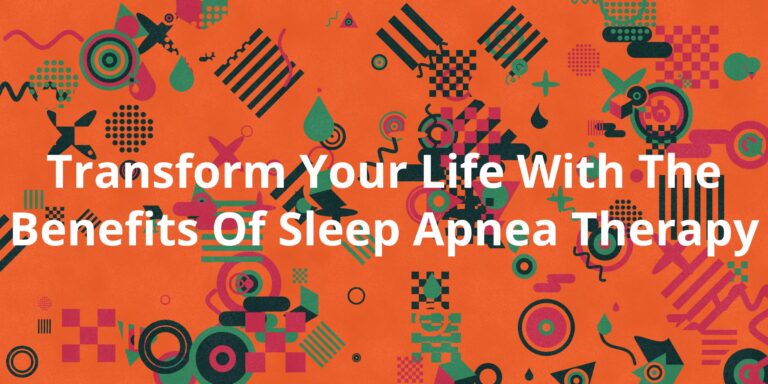Sleep apnea is a sleep disorder that affects millions of people worldwide. It occurs when the airways become obstructed during sleep, causing breathing difficulties and disrupting sleep patterns. While it may seem like a minor issue, sleep apnea can have significant long-term effects on an individual’s health and wellbeing. In this article, we will explore the psychology behind sleep apnea and its impact on life.
Psychological Effects of Sleep Apnea
Sleep apnea can cause a range of psychological effects that may negatively impact a person’s quality of life. These effects include:
1. Depression and Anxiety: People with sleep apnea often experience depression and anxiety due to the disrupted sleep patterns and lack of energy throughout the day. This can lead to feelings of frustration, irritability, and mood swings.
2. Cognitive Impairment: Sleep apnea can cause cognitive impairment, which can affect a person’s memory, attention span, and decision-making abilities. This can impact performance at work or school, as well as daily activities such as driving.
3. Reduced Sexual Desire: Sleep apnea can cause hormonal imbalances, which can reduce sexual desire and satisfaction in both men and women.
4. Social Isolation: People with sleep apnea may feel embarrassed about their condition and may avoid social situations due to fatigue or difficulty concentrating. This can lead to feelings of isolation and loneliness.
5. Decreased Self-Esteem: Sleep apnea can impact a person’s self-esteem, as they may feel self-conscious about their appearance or performance in various aspects of their life.
Treatment Options for Sleep Apnea
There are several treatment options available for sleep apnea, including:
1. Continuous Positive Airway Pressure (CPAP) Therapy: CPAP therapy involves wearing a mask that delivers pressurized air through the nose or mouth to keep the airways open during sleep. This is the most common treatment option for sleep apnea.
2. Lifestyle Changes: Making lifestyle changes such as losing weight, quitting smoking, and avoiding alcohol can help alleviate symptoms of sleep apnea.
3. Surgery: In severe cases, surgery may be recommended to remove excess tissue from the airways or to adjust the shape of the jawbone.
4. Alternative Therapies: Some people with sleep apnea may find relief through alternative therapies such as acupuncture, herbal remedies, and meditation.
Conclusion
Sleep apnea is a serious condition that can have significant psychological effects on an individual’s life. It is important to seek treatment for sleep apnea to alleviate symptoms and improve overall health and wellbeing. If you or someone you know is experiencing difficulty sleeping due to sleep apnea, it is essential to speak with a healthcare professional to explore treatment options.



